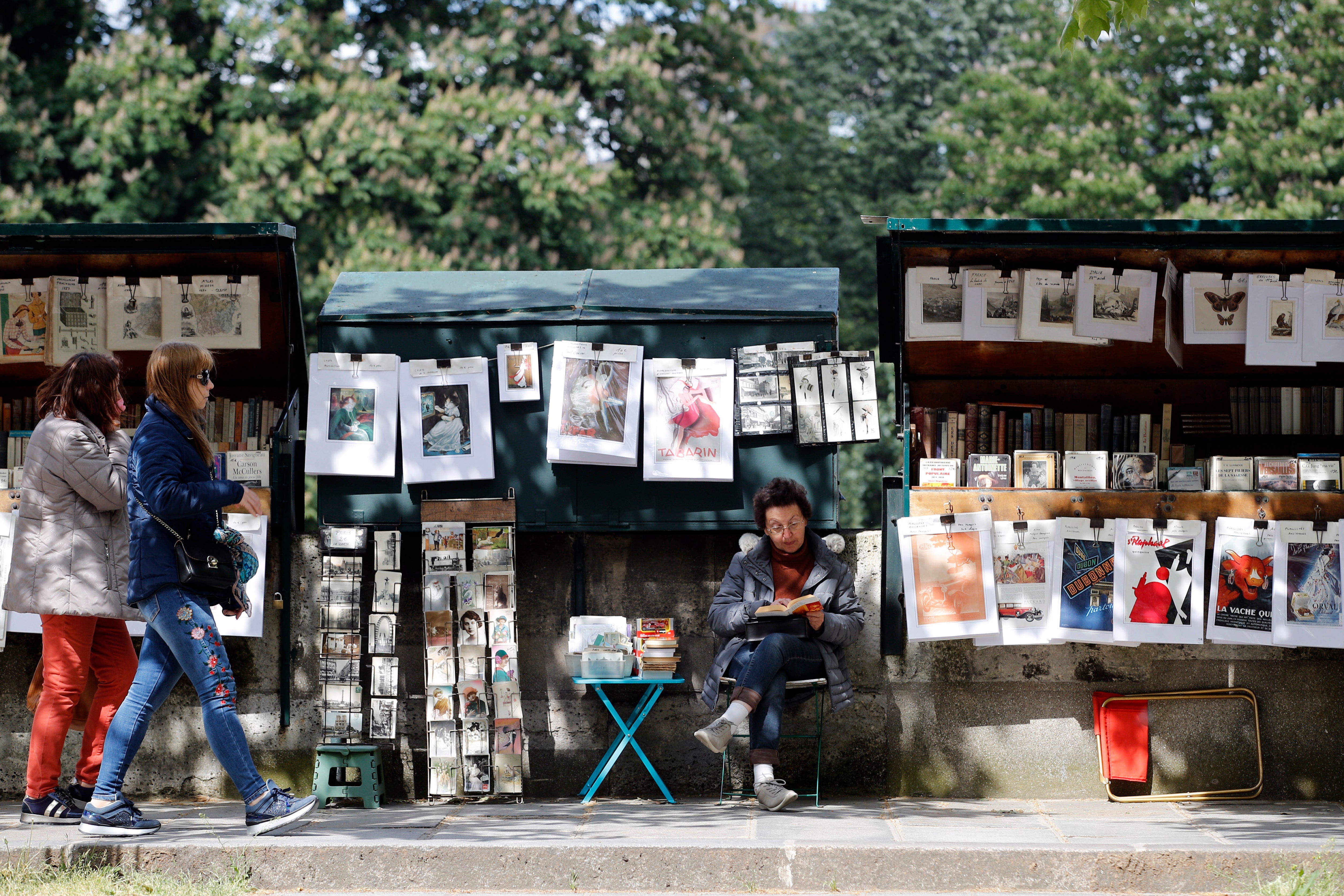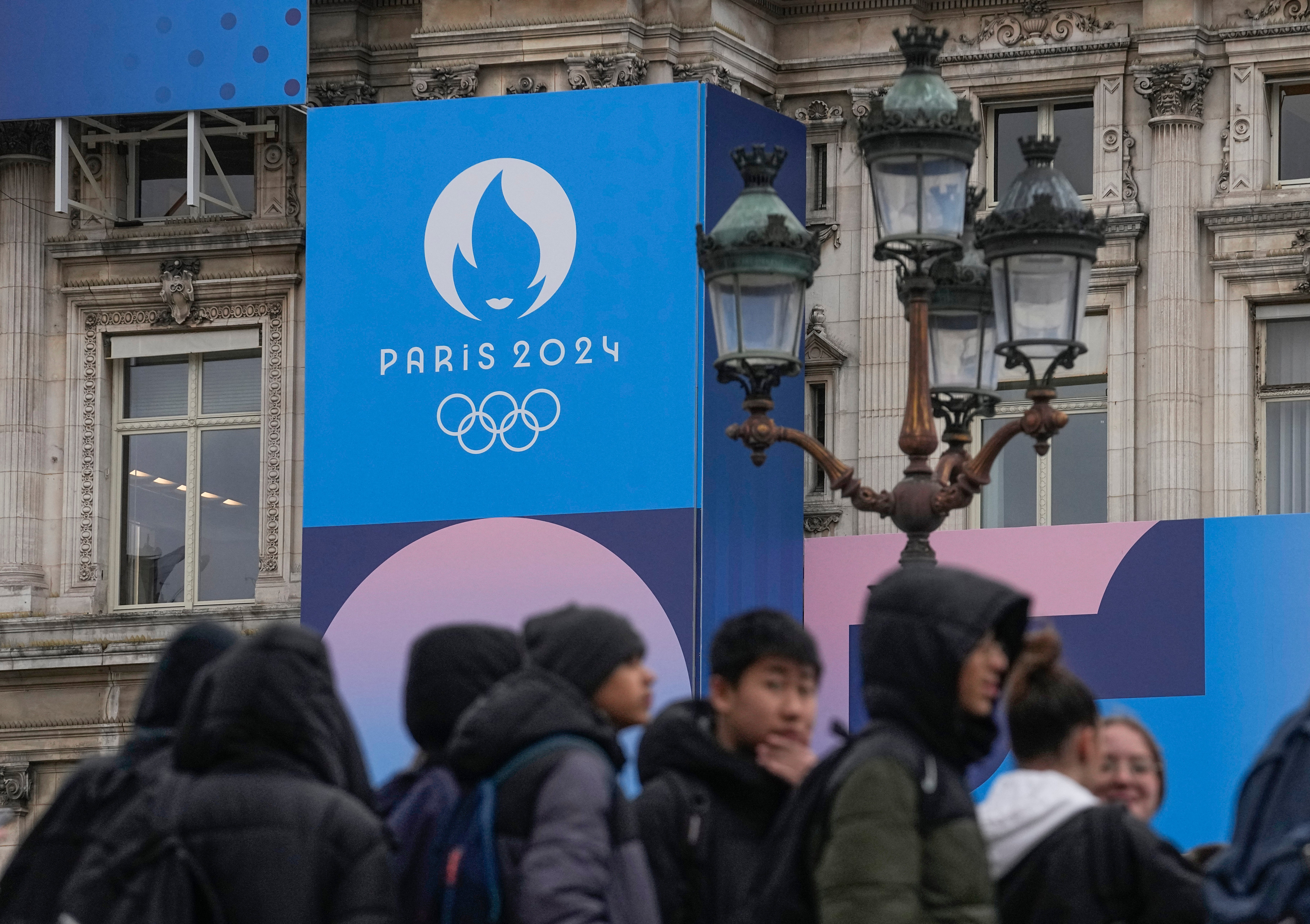Paris issues warning to tourists as city backtracks on Olympics plan
Paris is currently on high alert
Your support helps us to tell the story
From reproductive rights to climate change to Big Tech, The Independent is on the ground when the story is developing. Whether it's investigating the financials of Elon Musk's pro-Trump PAC or producing our latest documentary, 'The A Word', which shines a light on the American women fighting for reproductive rights, we know how important it is to parse out the facts from the messaging.
At such a critical moment in US history, we need reporters on the ground. Your donation allows us to keep sending journalists to speak to both sides of the story.
The Independent is trusted by Americans across the entire political spectrum. And unlike many other quality news outlets, we choose not to lock Americans out of our reporting and analysis with paywalls. We believe quality journalism should be available to everyone, paid for by those who can afford it.
Your support makes all the difference.Tourists heading to Paris around the time of the Olympics have been warned of a major change for the opening ceremony.
Those in Paris now won’t be allowed to watch the opening ceremony for free as initially promised, the French government announced on Tuesday.
Organisers had planned a grandiose opening ceremony July 26 for as many as 600,000 people, most watching free of charge from riverbanks. But security and logistical concerns — and an outcry from booksellers along the city’s picturesque quays — have led the government to progressively scale back ambitions.
Last month, the overall number of spectators was reduced to around 300,000. On Tuesday, Interior Minister Gérald Darmanin said that 104,000 of them will be paying ticket holders with spots along the lower riverbanks, with another 222,000 watching for free from the upper banks.
But he said that the free tickets would no longer be available to the public, and will be invitation-only instead.
“To manage crowd movement, we can’t tell everyone to come,” Darmanin said. “For security reasons that everyone understands, notably the terrorist threat of recent weeks, we are obliged to make it free but contained."

Two Interior Ministry officials said the decision means that tourists won't be able to sign up for free access as earlier envisaged. Instead, access to the ceremony will be allocated via quotas to select residents of towns hosting Olympic events, local sports federations and others chosen by organizers or their partners. The officials weren't authorized to be publicly named according to ministry policy.
Local town councils can invite “their employees, kids from local soccer clubs and their parents,” for example, Darmanin said. Those invited will then need to undergo security checks and will receive QR codes to pass security barriers.
With France on high alert, Darmanin said that intelligence services haven’t identified a specific plot targeting the Olympics. But he said that there are multiple potential threats, including from Islamic extremist groups, violent environmental activists and ultra-right groups, as well as cyberattacks from Russia or other adversaries.
France was hit by a wave of deadly attacks linked to the Islamic State group in 2015-16 that hit the Bataclan concert hall and other public venues, and the country has seen occasional extremist violence in the years since.
Intelligence services are conducting checks of about 1 million people slated to take part in, work for or have access to Paris 2024. Of 89,000 checks already carried out, 280 people have been rejected because of police records or other security problems, Darmanin said.

It’s the first time an Olympics opening ceremony will be held outside a stadium setting, in line with the Paris organizers' motto: “Games Wide Open.” About 10,500 athletes will parade through the heart of the French capital on boats on the Seine along a 6-kilometer (3.7-mile) route.
About 160 heads of state are expected to attend, and the government will close all airports and airspace within a 150-kilometer (90-mile) radius around Paris before, during and after the 3½-hour ceremony.
Around 2,500 foreign police will be among the 45,000 security force members deployed around Paris for the event, Darmanin said. Discussion is underway on whether the foreign forces can board the boats with their countries’ athletes, and what arms they will be authorized to carry.
Hiring and training enough security personnel for the Olympics, held from July 26-Aug. 11 and the subsequent Paralympics has proved challenging. About 10% of the private security personnel the government requested have yet to be hired, the officials said.
